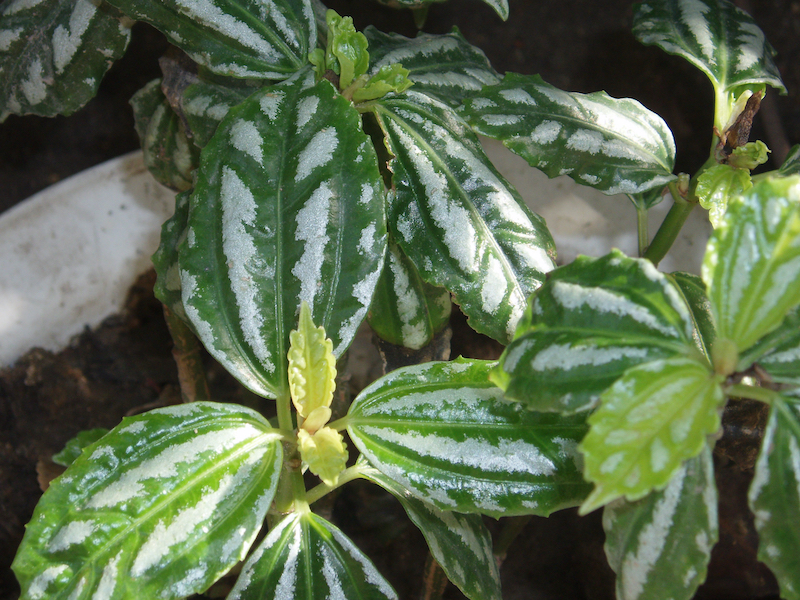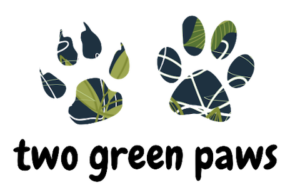Do you have a friendly (or not so friendly) feline at home? Are you looking for an interesting addition to your indoor garden that won’t put your precious pet in danger? Then look no further than the Aluminum Plant! This unique and vibrant plant is not only beautiful, but it’s also non-toxic for cats! In this blog post, I’ll give you all the information you need to know about caring for an Aluminum Plant around cats, so read on to learn more.
Aluminum Plant is non-toxic for cats according to the ASPCA. Consuming anything out of the norm can be hard on your cat’s digestion though. If you are concerned, consult a local veterinarian.

Image credit: Fanghong; Image licence: CC BY-SA 3.0
What is an Aluminum Plant?
The aluminum plant, or Pilea cadierei, is a beautiful and safe houseplant for cats! It has large green leaves with silver accents that are velvety to the touch. The foliage of this plant grows in an upright form and can reach up to 20 inches when mature. This low-maintenance plant also features small clusters of white flowers throughout the year. Its bright colors make it a great decorative addition to any pet friendly home.
How to Care for an Aluminum Plant
While aluminum plants are generally non-toxic and cats can play around them with no risk, they still need special attention so that they stay healthy and thrive in their environment. Here are some tips on caring for an aluminum plant:
First off, make sure the soil in which you grow your aluminum plants has plenty of drainage – standing water will cause root rot. The best soils for these plants are light and airy mixtures like coco dust or peat moss mixed with perlite or vermiculite. Keep the soil moist but not soggy at all times by watering as needed – typically once a week should be sufficient. Too much moisture can promote fungal growth and stunt the growth of your plant. If you live in a dry climate, misting your aluminum plant from time to time may help keep it hydrated too!
Don’t forget about the lighting needs of your aluminum plants either! These little guys prefer bright indirect sunlight since direct sunlight can scorch their leaves if left unprotected. You may also want to consider adding a small light source near them if possible; LED lights work great indoors as they don’t produce any heat while providing adequate lighting levels for photosynthesis to occur properly! Lastly, remember that these plants require regular fertilization with diluted liquid fertilizer every couple of weeks during growing season (April through October). This helps ensure optimal health and vibrancy in their foliage throughout the year!
Protecting your plants (and pets)
When it comes to keeping cats from damaging plants, one of the most important steps is to create a safe and structured environment for the cat. This means keeping the cat away from plants, where it can’t knock them over, or use them as a scratching post or chew toy. If the plant is kept in an area the cat has access to you can try to keep it out of reach.
Another tip is to provide plenty of other outlets for the cat’s curiosity. Make sure the cat has plenty of toys to play with, and give it plenty of attention and affection. If cats feel that they are getting enough stimulation, they are less likely to be tempted to damage plants.
Finally, if your cat does start to damage the plants, it’s important not to react with anger or aggression. Instead, try to redirect the cat’s attention away from the plants. If the cat is scratching a plant, try to distract it (but don’t reward it)!
I try to keep something more interesting or appealing near my plants. In the case of scratching, I put quality scratching posts wherever my cats want to scratch – whether that is by the couch or by an indoor tree! DIY or buy one that suits your decor.
Enjoying indoor plants as a cat owner
I love having plants in my home along with my cats. It’s not only aesthetically pleasing to have a variety of vegetation, but I get health benefits from it as well. Plants help to filter the air and can reduce airborne toxins, which helps keep us breathing easier. They regulate humidity. Plus they create a calming atmosphere that is perfect for mental wellness, reducing stress and promoting mindfulness.
Having indoor plants helps bring me peace throughout the day. Whenever I’m feeling overwhelmed or anxious, taking care of my potted friends provides an escape from reality that allows me to become one with nature despite being stuck inside four walls all day long. My cats benefit from personal cat television watching me work or enjoying the movement of leaves when there’s a breeze.
If you want to expand your plant repertoire check out other pet-safe options such as Lords and Ladies, african violets, or dried pampas grass.
